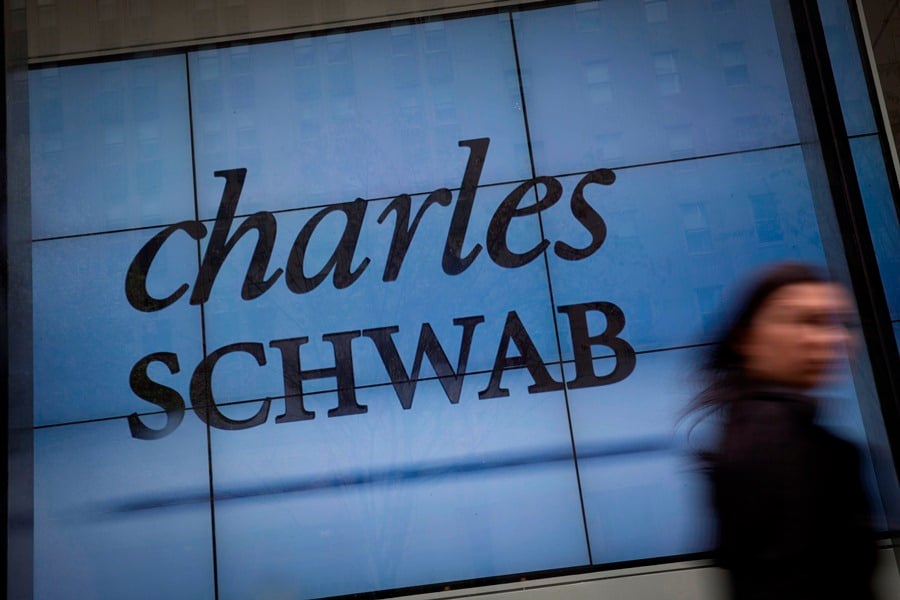

Charles Schwab Corp. will begin offering stock “slices” to its customers in June, allowing investors to purchase fractions of shares.
The goal is to attract younger investors looking to purchase securities they normally couldn’t afford, as well as offering a way to give portions of stock to family members as gifts, Neesha Hathi, head of Schwab digital services, said in an interview. The investments start at a minimum of $5 and the maximum is $10,000, she said.
As brokers and fund managers eliminate fees on stock trades and offer some other investments at no cost, many are turning to innovation to remain competitive and capture new customers. Schwab isn’t the first to introduce fractional investing for individual stocks -- Robinhood Financial, Social Finance Inc. and Stash Investments, among others, have launched similar products in the past two years.
Fractional shares make investing more accessible for popular securities such as Facebook Inc., Apple Inc. and Amazon.com Inc., whose prices are higher than the amounts many new investors have available, Hathi said.
“Instead of investing one time, you can do it every week because it’s affordable,” said Brandon Krieg, co-founder and chief executive of Stash. “Customers invest in companies that they understand, and over time they move past fractions and into full shares.”
The concept is simple: An investor chooses a desired dollar amount to invest, usually as low as $1, and gains a fraction of the total value of a share.
On the back end, brokerages hold inventory accounts of full shares and allocate portions of those to their customers as they are purchased. When a company doesn’t already hold a particular security desired by an investor, it purchases a full share from the market, gives a fraction of ownership to the customer and holds the rest in its portfolio.
Fractional-share technology is also behind products such as Stash’s “stock back” debit card, which offers share rewards on purchases, and Robinhood’s recurring investments tool, which allows users to set up automated share purchases in designated amounts.
The goal is to bring new, underserved customers into investing, Anthony Noto, CEO of SoFi, said in an interview.
“Innovations make investing more accessible to people, there’s an insatiable demand for it,” Noto said.

The two firms violated the Advisers Act and Reg BI by making misleading statements and failing to disclose conflicts to retail and retirement plan investors, according to the regulator.

Elsewhere, two breakaway teams from Morgan Stanley and Merrill unite to form a $2 billion RIA, while a Texas-based independent merges with a Bay Area advisory practice.

Analysis of four-year data shows average account balances nearly doubling among steady savers, with younger workers seeing the largest percentage growth.

Survey research shows just over half of Gen Xers satisfied with advice as retirement and economic anxieties take a toll.

Two reports reveal investor behavior including earlier participation of young Americans.
Orion's Tom Wilson on delivering coordinated, high-touch service in a world where returns alone no longer set you apart.
Barely a decade old, registered index-linked annuities have quickly surged in popularity, thanks to their unique blend of protection and growth potential—an appealing option for investors looking to chart a steadier course through today's choppy market waters, says Myles Lambert, Brighthouse Financial.
